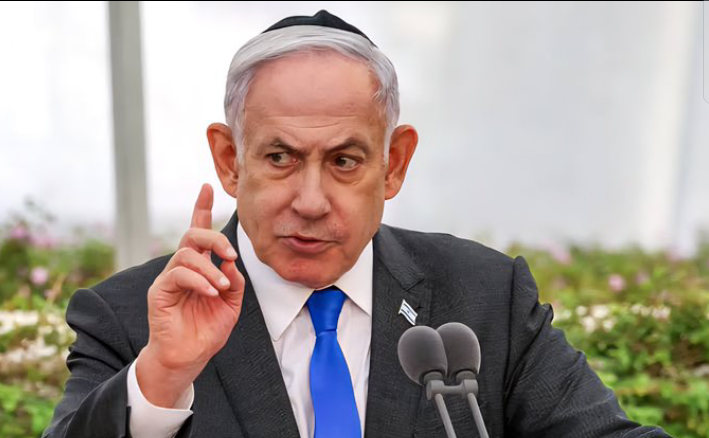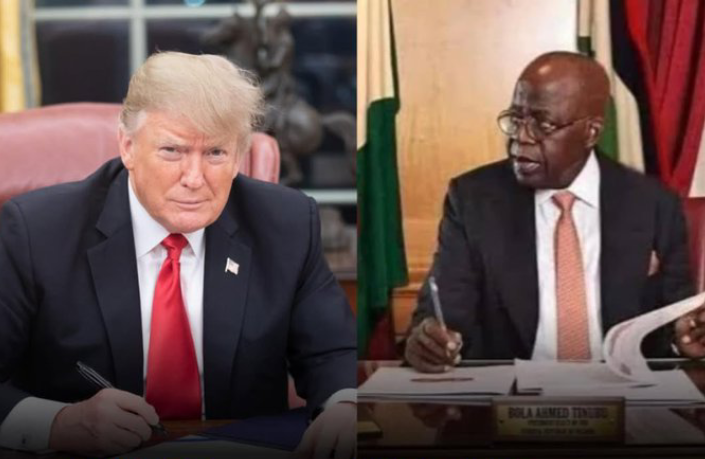
Netanyahu Rejects Palestinian Statehood, Vows More Settlements in Defiant Stand

In a move that has already sent shockwaves through the international community, Israeli Prime Minister Benjamin Netanyahu has doubled down on his long-standing rejection of a Palestinian state, declaring that under his leadership there will be no recognition of Palestinian sovereignty west of the Jordan River. His statement, delivered with his trademark defiance, has further inflamed tensions in a region already burdened by decades of conflict, raising fears of a new wave of escalations as Israel pushes ahead with more settlement expansions in the occupied West Bank.
Speaking before his allies and party loyalists, Netanyahu made it unequivocally clear that he has no intention of bowing to mounting international pressure for a two-state solution. “There will never be a Palestinian state west of the Jordan River,” he vowed, drawing thunderous applause from supporters but equally sparking outrage from Palestinians and human rights advocates. His comments, far from ambiguous, struck at the heart of a decades-old geopolitical debate that has shaped Middle Eastern politics, diplomacy, and countless failed peace efforts.
The announcement comes amid growing calls from global leaders and institutions to revive peace talks and secure a just resolution to the Israeli-Palestinian conflict, particularly in light of the humanitarian crises unfolding in Gaza and the West Bank. Yet Netanyahu, who has long portrayed himself as a bulwark against what he sees as threats to Israel’s security and territorial integrity, has chosen confrontation over compromise. His pledge to authorize more West Bank settlements further underscored his intent to tighten Israel’s grip on contested territories, a move that many international legal experts argue is in violation of international law under the Geneva Conventions, which prohibit the transfer of civilian populations into occupied lands.
Palestinian officials immediately denounced the prime minister’s stance, warning that Netanyahu’s words amounted not only to political provocation but also to a deliberate dismantling of any remaining hope for peace. The Palestinian Authority, already weakened by years of internal division and dwindling support, called the declaration “a death sentence” for the two-state solution, accusing Israel of openly embracing an apartheid-style regime that denies Palestinians self-determination and the most basic of rights. Hamas, the Islamist group that governs Gaza, condemned Netanyahu’s position as further proof that armed resistance is the only viable path left for Palestinians, raising fears that renewed violence could erupt.
The international reaction has been swift and pointed. European Union officials expressed deep concern over the Israeli leader’s remarks, reiterating the bloc’s commitment to a two-state solution as the only pathway to lasting peace. The United Nations Secretary-General’s office issued a carefully worded statement underscoring that the denial of Palestinian statehood contradicts international consensus and decades of resolutions affirming the right of the Palestinian people to self-determination. Meanwhile, Arab nations that had cautiously warmed to Israel under recent normalization agreements now find themselves under immense pressure from their citizens to respond forcefully to Netanyahu’s open dismissal of Palestinian aspirations.
In Washington, the Biden administration faces a delicate balancing act. While the U.S. remains Israel’s closest ally, Netanyahu’s increasingly hardline positions are testing American patience. Senior U.S. officials have repeatedly affirmed their support for a two-state solution, but Netanyahu’s defiance threatens to undermine American diplomatic credibility in the Middle East. Analysts say the prime minister’s timing is deliberate, betting on divisions within the international community and leveraging Israel’s growing ties with Gulf states to insulate himself from serious repercussions. Yet, the possibility of friction between Washington and Jerusalem is growing as the U.S. grapples with its own domestic debates over aid to Israel and accountability for human rights violations in Palestinian territories.
Inside Israel, Netanyahu’s stance has also sparked polarizing reactions. Right-wing supporters celebrated the declaration as a reaffirmation of Israel’s biblical and historical claims to Judea and Samaria, the Hebrew names used for the West Bank. To them, Netanyahu is standing firm against international “bullying” and protecting Israel’s security in an increasingly unstable region. But opposition politicians and peace activists accused the prime minister of dooming Israel’s future by closing the door on meaningful negotiations. Former security officials warned that the policy would only entrench conflict, weaken Israel’s global standing, and ultimately jeopardize its long-term security. Civil society groups in Israel lamented that the leadership’s choices are paving the way for perpetual war rather than peace.
The expansion of West Bank settlements is at the core of the controversy. Already, more than half a million Israeli settlers live in communities scattered across the territory, many built on land Palestinians envision as part of their future state. Each new settlement announcement not only deepens Palestinian resentment but also makes the prospect of a contiguous, viable Palestinian state increasingly impossible. Netanyahu’s vow to accelerate this expansion has been described by observers as a strategic attempt to render the two-state solution obsolete on the ground while shifting the political narrative toward a one-state reality where Palestinians remain stateless within Israeli-controlled borders.
For Palestinians living under occupation, Netanyahu’s statement is more than just rhetoric—it is a chilling confirmation of their lived reality. Families in the West Bank continue to face land confiscations, home demolitions, military checkpoints, and restrictions on movement. Human rights groups have documented what they describe as systemic discrimination against Palestinians, with policies designed to favor Israeli settlers while denying basic rights to the indigenous population. The promise of more settlements signals not only continued dispossession but also an emboldened Israeli government that no longer feels restrained by international norms.
The global debate now turns to what comes next. With peace talks effectively dead and the two-state solution on life support, some analysts suggest that the world may need to reconsider alternative frameworks, including a single binational state where Israelis and Palestinians share equal rights. However, Netanyahu’s government is fiercely opposed to such an idea, fearing it would erase Israel’s Jewish character. Others argue that escalating international pressure, including sanctions or recognition of Palestinian statehood by more nations, may be the only way to counterbalance Israel’s defiance. Yet, such measures remain politically difficult, particularly given Israel’s strategic alliances and its powerful lobby in Western capitals.
As Netanyahu digs in his heels, the prospects for peace grow dimmer. His rejection of Palestinian sovereignty west of the Jordan River is not a passing remark but a deliberate policy statement that cements Israel’s hardline trajectory. For Palestinians, it represents another chapter in a long history of dispossession and denial. For the international community, it is a sobering reminder of the fragility of diplomacy in a conflict where mistrust and power imbalance continue to dominate.
Whether this bold defiance ultimately strengthens Netanyahu’s domestic standing or isolates Israel further on the world stage remains to be seen. What is clear, however, is that the dream of Palestinian statehood—a vision once championed in countless summits, treaties, and UN resolutions—has suffered another devastating blow. As settlements expand and rhetoric hardens, the hope of a negotiated peace grows ever more distant, leaving behind a volatile landscape where despair and defiance threaten to consume yet another generation.


